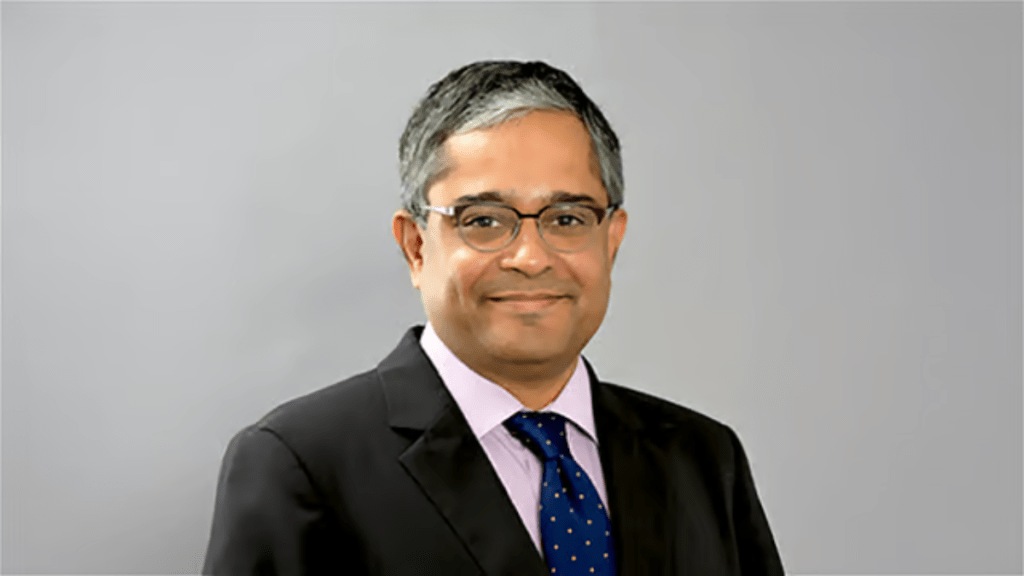Rajiv Anand had two job offers when he passed out as chartered accountant in 1990 – HSBC and HUL. By his own admission in a recent interview, he chose HSBC because he was being sent to Hong Kong for six months. HUL, on the other hand, wanted him to go to a village called Eta. The decision seems to have worked out quite well.
The former deputy managing director of Axis Bank will be in the ‘hot seat’ as MD & CEO of IndusInd Bank at a time when the bank is under regulatory scrutiny from the Reserve Bank of India for unreported forex derivatives losses of around Rs 2,000 crore. And even the Securities and Exchange Board of India (Sebi) had charged its former CEO, deputy CEO and three others for alleged insider trading. Clearly, things aren’t hunky dory at the country’s fifth largest private sector bank.
Anand’s appointment comes amid crisis and cleanup
But what works in Anand’s favour is his long experience in the financial sector, and that too, as deputy managing director of the country’s third biggest private sector bank that has been growing at a fast pace through acquisitions. With over 35 years of experience across marquee institutions—Standard Chartered, ANZ Grindlays, HSBC, and Axis Bank—Anand brings a pedigree of leadership and a reputation for navigating complex transitions.
Further, he has worn many hats – as a currency trader, MD & CEO of an asset management company, commercial and retail banker and has been on the board of Axis bank’s insurance arm. No wonder, the stock market gave his appointment a big thumbs up, with IndusInd’s stock rising 6% intra-day.
After his appointment was announced late Monday, Ashok Hinduja, Chairman of IndusInd International Holdings said, “On behalf of the IIHL’s Board and global shareholders, I compliment the regulator for the expeditious approval of the appointment of Rajiv Anand as the MD & CEO at IndusInd Bank. As the promoter of IndusInd Bank, we offer full support and wish him all success.”
“We trust that with his vast experience, he will be able to realize the full potential of this strong private bank franchise. We greatly appreciate the role that the Board and the Executive Committee played in steering the Bank through this challenging period,” he added.
Brokerage Emkay Global struck a cautiously optimistic note. “We believe the appointment of a private banker is a positive development, although it would be prudent to wait for the new MD & CEO to allay any risk of further kitchen-sinking as well as to articulate his long term strategy – particularly re-orienting the bank’s asset/liability profile, rebuilding the senior management team, strengthening risk monitoring and management functions, and reinforcing government
The bank’s own committee had signalled its intent to start FY26 with a “clean slate.” In Q4, it absorbed the impact of discrepancies in both the derivatives and microfinance books, resulting in a net loss of Rs 2,329 crore. Yet, the first quarter of the current financial year brought fresh challenges, with elevated slippages stemming from persistent stress in the microfinance segment.
Asset quality concerns continue to simmer, particularly in the CV/CE and business banking segments, which together account for about 20% of the loan portfolio. Navigating margin pressures amid a volatile rate cycle and managing higher loan loss provisions could keep return on assets (RoA) subdued at 0.6–1.2% over FY26–28, Emkay’s report said.
With governance reforms underway, investor sentiment tentatively recovering, and a clear five-point agenda in place, the bank is banking on Anand’s deep industry experience to deliver stability and strategic clarity.
The road ahead
Anand has always faced tough challenges. Just one year after he joined as a trader in HSBC, two key things happened – the Indian economy was liberalised and the Harshad Mehta scam broke. Both changed the landscape of the financial sector. This time, as the MD & CEO, he has the significant challenge to change regulators’ and investors’ perception about the bank.
